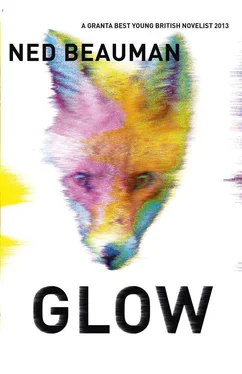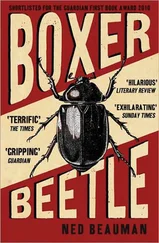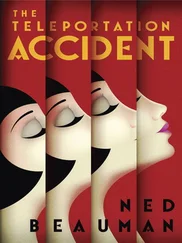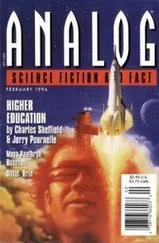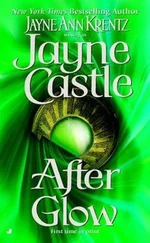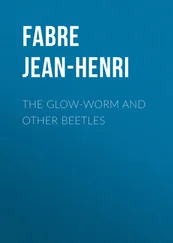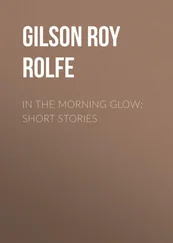‘And you know what else we brought here from Gandayaw?’ Cherish adds. ‘The one guy in the world who knows how to make glow, the drug, from glo , the plant.’
‘Nobody else knows the process?’
‘Nobody.’
‘But why should Lacebark care?’ says Raf. ‘They mine copper and rubies.’
‘Yeah, but they’re not very good at it any more. They want a new business. You know what 3M stands for? The Minnesota Mining and Manufacturing Company. They used to mine aluminium oxide. They make a lot more money now selling Post-its and Scotch tape and stuff. That’s why Lacebark want to start manufacturing and selling glow. If no one else had the plant or the process, they’d have a monopoly over it, like the British East India Company had over opium in China. The wholesale ecstasy market is worth about twenty billion dollars a year worldwide. It’s impossible to find out Lacebark’s real annual revenues because they pull a lot of Enron shit to keep people from finding out that they’re fucked, but by now the number might be about seven billion and dropping fast. If Lacebark could get glow to the point where it was even half as popular as ecstasy, then they could forget about mining. They’d be profitable for ever, and no one would ever have to find out how close to the edge they came, and none of them would have to go to jail.’
‘But they’re a legitimate company.’
‘Those laboratories in China that make mephedrone and ethylbuphedrone are legitimate companies too. Soon they’ll all be part of conglomerates. That’s the way it’s going.’
Isaac has a theory that drugs like mephedrone are a sort of delayed act of revenge for the Opium Wars: two hundred years later, the Chinese finally get to sell a debilitating narcotic back to the British.
‘Lacebark are accountable in America, though,’ Raf says. ‘They’d have to start laundering money.’
‘Are you kidding? They already do. Most of the money Lacebark makes from the Concession goes through banks in Macau to dodge corporate taxes. If things worked out with glow, they’d probably keep the Concession open, but by then it would just be another step in the money-laundering process. The fabric softener or whatever. That’s one thing Lacebark and the tribes of Burma have in common. We both love dodging taxes.’
‘So Lacebark are paying you to help them find Zaya and this chemist.’
Translating for Zaya, Cherish says: ‘Our people don’t have a lot of legends, but there’s one from about eight hundred years ago that’s very important to us. When we lived farther down in the valleys, there was this jumped-up local king who tried to take a census. No one had ever tried to take a census before. We dragged him off the throne and cut off his head.’
‘That’s the whole legend?’
‘Yeah. The point is we don’t like people trying to make lists of our names.’
‘And that’s what Lacebark are doing right now?’
‘Yeah. They know glow is being produced and distributed through the Burmese community in south London. So they think if they map what they call our “vectors of influence”, they can eventually trace the supply of glow back to its source. That’s what I’m meant to be helping them with. But obviously most of the information I’m feeding them is false. You know, every time I go to that tennis court to talk to those assholes from your radio station, it reminds me of the old hotel.’
This is so much information to absorb that Raf begins to wish he was on Isaac’s tentacular neuroplasticity diet himself. He realises he still hasn’t told them about going into Lacebark’s training facility. ‘I’ve seen some of this from the inside now,’ he says.
‘What do you mean?’
When Raf explains, he can see that Cherish and Zaya are as astonished as if he’d told them he’d challenged Bezant to a fistfight. ‘You’re a brave man,’ Zaya says. It’s the first time Raf has heard him speak English.
‘Well, yeah, it was really scary, but now I’m wondering what the point was. The only thing I found out that’s any use is that Lacebark are looking for a chemist. And if I’d just waited a few hours you would have told me that anyway.’
Translating for Zaya, Cherish says: ‘Anything that’s a big “fuck you” to Lacebark is worth doing. As long as it doesn’t get anyone killed.’
‘So what happens next?’
‘At the end of this month, Lacebark are going to change tactics.’
‘Oh right, yeah, the Lacebark guy I met said that they had something big planned for the first day of June.’
‘So far, we think Lacebark have kidnapped, interrogated, and murdered around eight or nine people since they got to London. . including your friend Theo. I’m really sorry, Raf,’ she adds when she sees the expression on his face. ‘But, anyway, it’s not getting them results. And Bezant’s getting impatient. If they haven’t got what they want by the end of this month, they’re going to come down really hard. Simultaneous raids across the city. A lot more people are going to die in one night.’
‘But this is London,’ says Raf weakly.
‘Oh, because this is a First World city with good tapas bars, nothing really bad can ever happen here? None of the soldiers working for Bezant have ever been here before. London is just another foreign battlefield to them. They might as well be in Yangon or Mogadishu. They don’t give a shit. And neither do we. This is a war between two stateless peoples that happens to be taking place inside a state.’
Zaya adds something. ‘This is nothing new for us. In the sixteenth century Bayinnaung held on to his empire only because he hired mercenaries from Portugal with better weapons.’
Raf has always felt vaguely stateless because of his syndrome. Arizona observes daylight saving time, but inside Arizona there’s a Navajo reservation that doesn’t, and inside the Navajo reservation there’s a Hopi reservation that does, two assertions of autonomy that cancel each other out. No enclave except the Concession, however, has yet had the courage to abandon the quotidian clock completely. Or perhaps it’s not right to say that Raf has declared independence from the world, but rather that his suprachiasmatic nucleus has declared independence from Raf: those old-fashioned, dotted-line diagrams of the brain have always reminded him of territorial maps, and his SCN might be a microscopic Gandayaw, refusing to submit to his government. For the first time he wonders whether one reason he’s let himself get pulled so deep into this — even after he realised how dangerous it might be, even after he pretty much gave up hope of rescuing Theo, even when he thought the girl he wanted so much was working for the wrong side — was that in some way he feels suited to it: this ghost conflict detached from everybody else’s London.
‘So how are you going to stop them?’ he says.
Cherish glances at her brother. ‘At this point we have no fucking idea. Short of giving ourselves up. Which we are not going to do.’
‘Couldn’t we call the police with an anonymous tip that the freight depot’s a big cannabis farm or something?’
‘It wouldn’t work. And even if it did, you saw how many Burmese they have there, right? The actors? We’re not going to do anything to fuck those people over.’
‘But they’re working for Lacebark.’
‘You lose your family in the cyclone. You spend six months in a refugee camp on the Thai border. You find a way to get to London. And then you get offered a job wandering around a warehouse for three times what you’d make as a janitor on a night shift. What are you supposed to do? We don’t blame them for working for Lacebark. They’re not in this fight yet. The last thing we want to do is get them arrested or deported as collateral damage.’
Читать дальше
